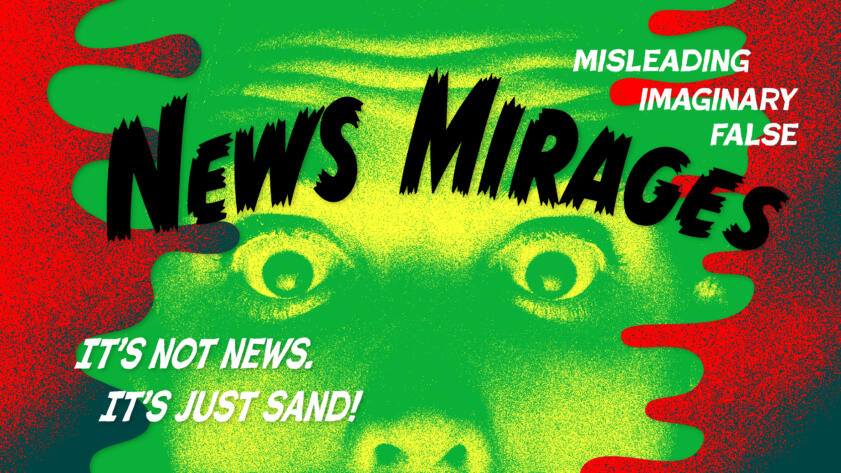Hi, everyone—Nabiha and Sisi here to discuss something that’s been on our minds lately.
We’re sadly all too aware of the crisis of news deserts: communities starved of credible, trustworthy information. With an election looming, the problems they pose rise to the level of a full-on threat to democracy. But because it’s the 2020s, we’re here to talk about a new and different type of hellscape that compounds the problem of news deserts—what we call news mirages.
News mirages are entrancing. When a community is exposed to one, they feast on what looks like safe and trustworthy information—but it isn’t news, it’s just sand. We’ve become accustomed to some of the forms this can take: hot takes on NextDoor or local Facebook groups, unverified rumors on Reddit, and so on. But generative AI is going to change the game in ways we’re expecting, and certainly in ways that we’re not.
Rapid developments in generative AI makes it easier and easier for bad actors to conjure these mirages using text, audio, photo, and video, using quantity to overwhelm the little oases of quality information communities manage to access.
There will also be unforced errors. As Futurism reported, just recently Sports Illustrated contracted with a third-party company to create promotional product review content for its website. It appears that company then created fake, AI-generated authors—replete with fake bios and headshots—to “write” content for those product reviews. It lives alongside journalism, it looks like a journalist wrote it, and it’s totally imaginary. While one might see the economic motivations for outsourcing low-quality content generation, it doesn’t do much for overall trust in journalism, which is already about as popular as a dumpster in Hades.
So we face two threats, acute and endemic, from news mirages: misleading information and trust that circles the drain. What’s the plan?
In the last year, The Markup’s work has grown to be more and more public service- and community-oriented for a reason. We’ve continued to publish groundbreaking, data-driven investigative journalism, and we’ve also made sure to hand deliver that journalism in creative ways so people receive it and can act on it.
We’ve built new tools like our Twitter throttling detector and added new features to existing tools like our Blacklight privacy inspector, so that members of the public can audit any website they want, not wait for someone else—engineer, researcher, or otherwise— to do it and write about it. We’ve worked directly with students, teachers, local journalists, and nonprofits to help them investigate internet disparity in their own communities without knowing how to code. We’ve taught workshops for the communities we’ve reported on. We’ve amplified community members who are working on their own solutions.
We’ve focused on the journalistic “last mile” that is essential to countering news mirages.
It has never been enough for journalists to only produce reliable, independent information, they must make sure that people actually receive it and can act on it.
Going into 2024, we don’t want The Markup to be just a news publication you read. We want to be a place where our tools equip you with superpowers, a place where communities can both educate and learn from our journalists and engineers, and a place where you can trust that no matter what, we’ll be transparent with you, we’ll show our work, and we’ll respect your privacy.
Humbly, we’d like to be a news oasis for you in 2024, providing you respite from the deserts and the mirages.
Thanks for reading,
Nabiha Syed and Sisi Wei
Chief Executive Officer and Editor-in-Chief
The Markup




